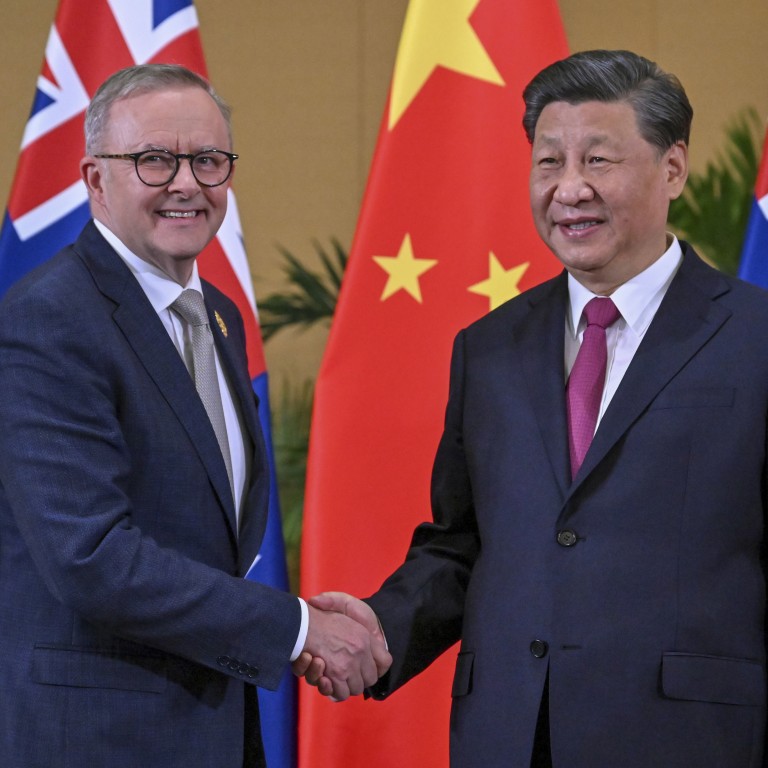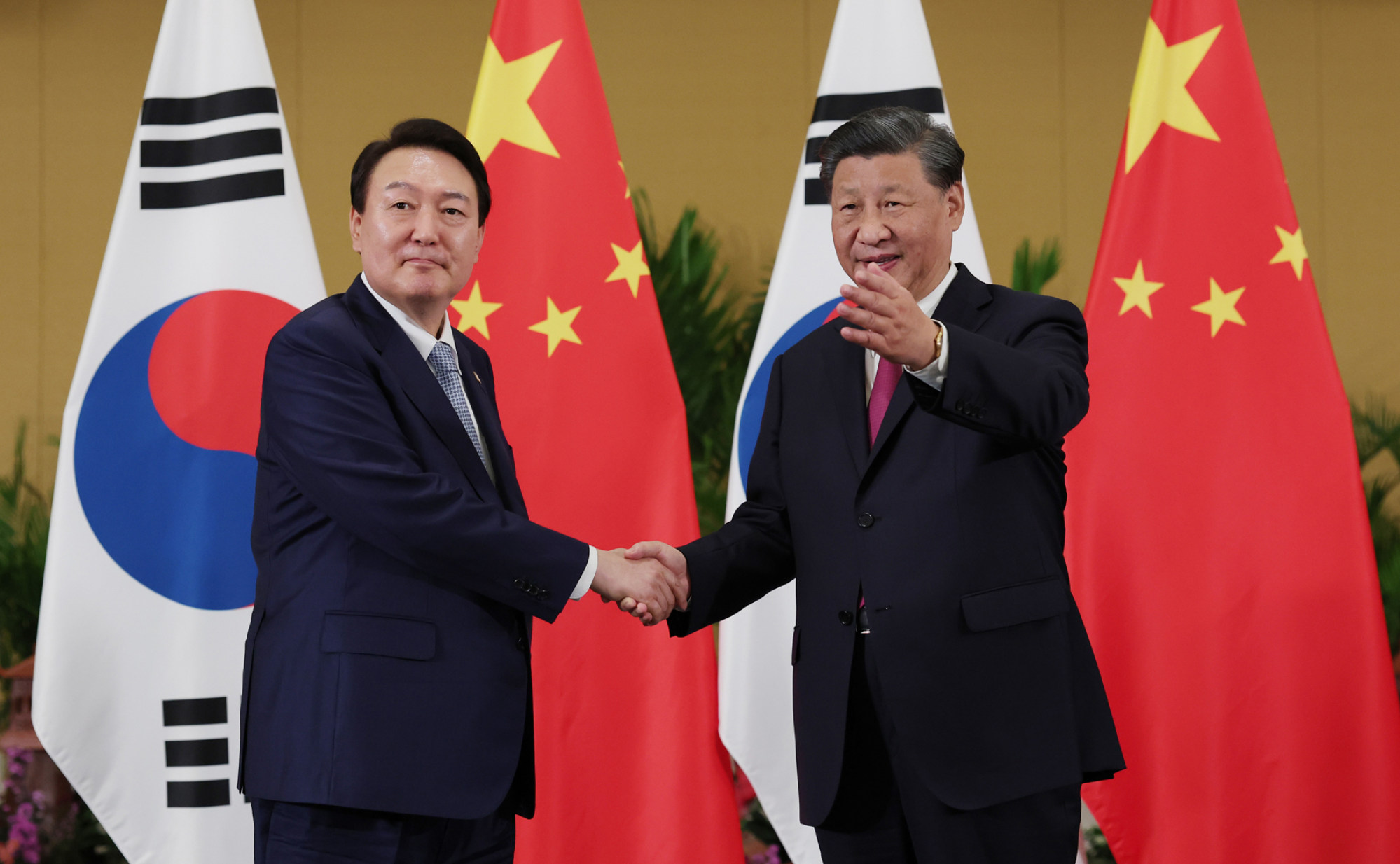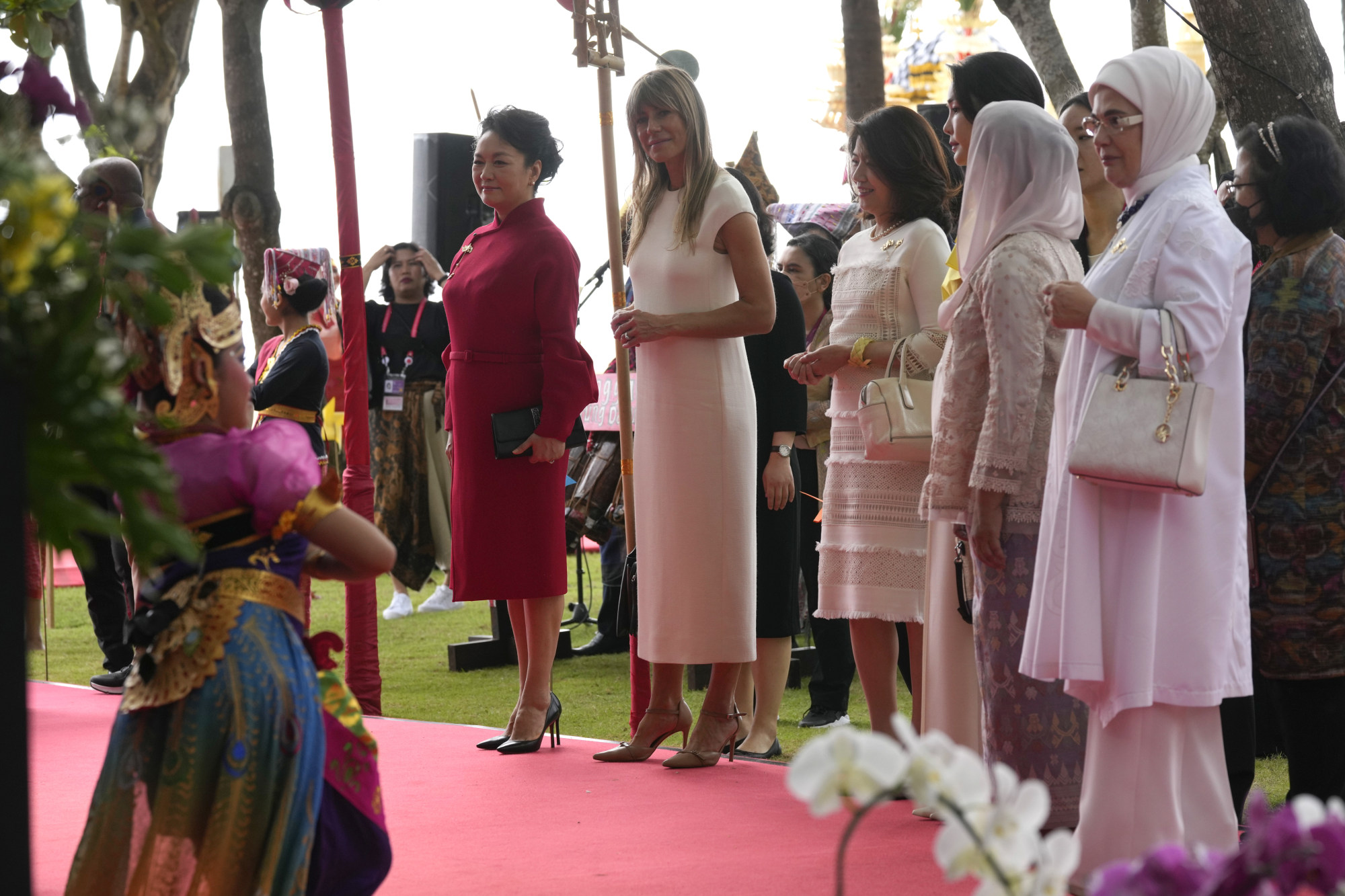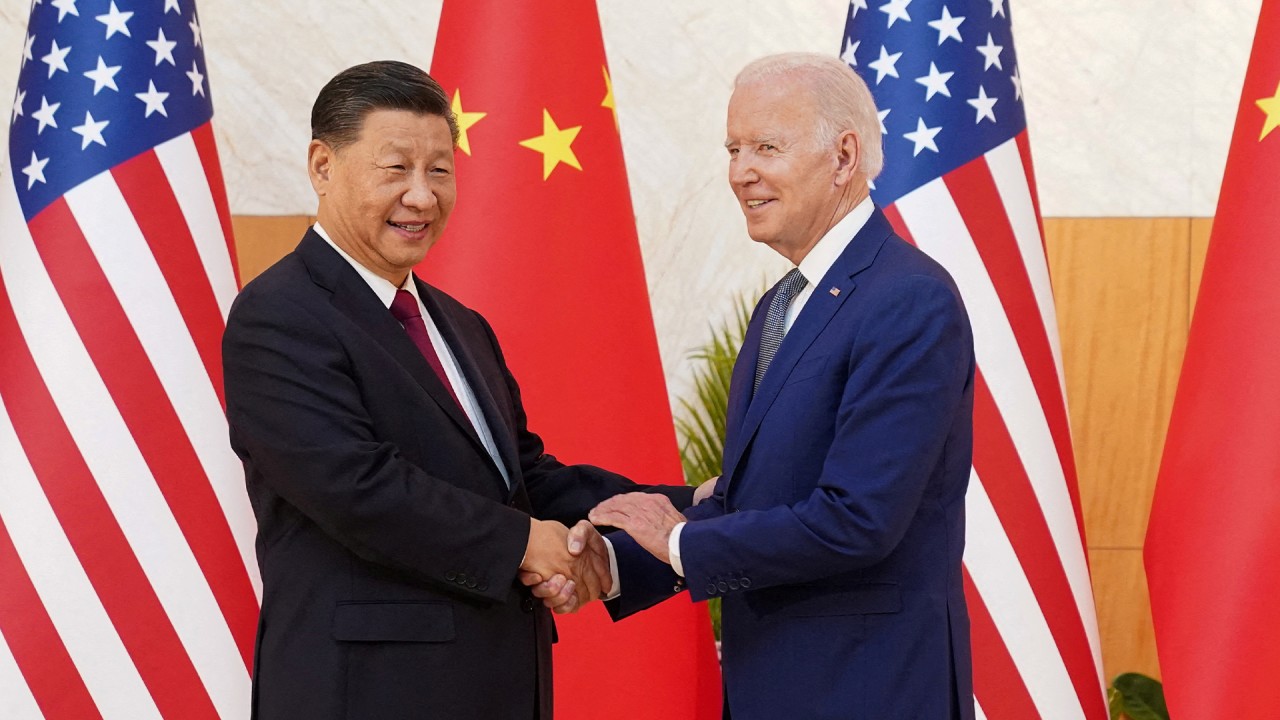
G20: Xi Jinping’s meetings with Australia’s Albanese, South Korea’s Yoon show US allies’ hope to reboot ‘complex’ ties
- Chinese President Xi Jinping, who earlier met US President Joe Biden, talked to Anthony Albanese, South Korea’s Yoon Suk-yeol on Tuesday
- Half-hour meeting between Xi and Albanese was first formal talks between leaders of two countries in six years; Xi said ties ‘worth cherishing’
Of particular note was the roughly 30-minute meeting between Xi and Australian Prime Minister Anthony Albanese, the first formal talks between the leaders of the two countries in six years amid a spate of quarrels.
Foreign policy observers suggested further steps by both sides following Tuesday’s talks would offer a clearer indication of whether a long-lasting thawing of the relationship is on the cards.
Observers have said the language used by the superpowers following that meeting was indicative of a mutual desire to turn down the temperature in their rivalry.
Xi told Albanese there was no “fundamental conflict of interest” between the two countries and emphasised the potential for economic cooperation, Chinese state media said after the meeting.
He added that the previously warm Sino-Australian ties were “worth cherishing”, calling for fractured relations to “improve”.
Albanese said in a statement after the meeting that “this was another important step towards the stabilisation of the Australia-China relationship”.
“We are always going to be better off when we talk to each other, calmly and directly,” he said. “There are many steps yet to take”.
When asked several times by reporters about any progress in China lifting trade sanctions against some Australian exports following his meeting with Xi, Albanese said he has raised the issue “clearly” while noting discussions were not at a “commercial level.”
“It was a positive discussion,” Albanese said. “We put forward our position. It was not anticipated that [in] a meeting such as that, you get immediate declarations.”
Since coming to power in May, Albanese’s centre-left Labor government has worked to stabilise the relationship with Beijing, with the prime minister saying they would “cooperate where they can” while still standing up for Australia’s domestic interests.
The new prime minister has maintained his predecessor’s move towards strengthening security ties with the US, including the Quad and Aukus security groupings.
‘Highly complementary economies’
Xi met with South Korean President Yoon later on Tuesday – also their first physical meeting – with North Korea’s nuclear and missile programme on the agenda.
During the talks Xi said China and South Korea’s economies were “highly complementary” and that it was necessary to deepen cooperation in the fields of hi-tech manufacturing, big data and the green economy and to accelerate the negotiation of free trade agreements, Chinese state television CCTV reported.

Yoon also expressed hopes for a mutually beneficial, mature relationship with China.
Nick Bisley, dean and professor of international relations at Australia’s La Trobe University, said Albanese’s meeting with Xi, despite having no significant breakthroughs, represented a “symbolically significant next step”.
This was particularly so as Sino-Australian ties have been at the worst since the normalisation of relations in the 1970s, with high-level interactions dried up.
“That Xi was willing to meet Albanese without any changes in Australia’s position is a positive sign that relations may have a somewhat brighter future,” he said.
Don’t weaponise food, energy security, China’s Xi Jinping’s tells G20
“There remains considerable mistrust on both sides but clearly the Chinese want things to change.”
To Zha Daojiong, a professor at Peking University’s School of International Studies, the resumption of talks between Australia and China was a “natural development”.
The Albanese administration has “toned down, at least in public rhetoric, about Canberra’s assessment of security ties with China”, he suggested.
Xi is also expected to hold talks with Japan’s Prime Minister Fumio Kishida on Thursday, on the sidelines of the Asia-Pacific Economic Cooperation (Apec) summit in Thailand.
Zha noted that the political differences between China and US allies in the Asia-Pacific region – Australia, Japan and South Korea – were long-lasting but governments have always been able to “make the best out of what are structurally complex sets of relationships”.
‘It cannot fail’: G20 must prevent ‘another cold war’, Indonesia’s Jokowi warns
Leaders would also be able to show that they can “carve out ways to inject dynamism in regional economic exchanges” if their meetings with Xi helped build momentum for China’s membership of the Comprehensive and Progressive Agreement for Trans-Pacific Partnership (CPTPP), he said.
China has been eager to join the CPTPP, one of the world’s largest multilateral trade agreements which was the successor to the Trans-Pacific Partnership originally mooted, then abandoned, by the US.
While Australia, Japan and South Korea were known to be strong supporters of the US, their alliance with Washington should not prevent them addressing challenges with China, added Zha.
“The function of a US-centred alliance is, and should be, parallel to normal state-to-state interactions between each of the three, and China,” he said.

Bisley, the professor, said the bilateral talks that Xi was conducting made clear that “China’s back” having been absent from in-person meetings since 2020.
“One might be tempted to see this as indicating something of a moderation in Xi’s foreign policy, but I think it’s too early to reach that judgment just yet,” he said.
Additional reporting by Bloomberg


